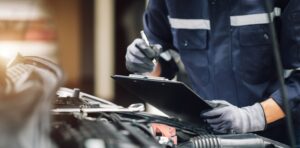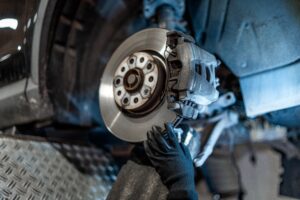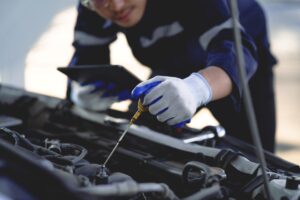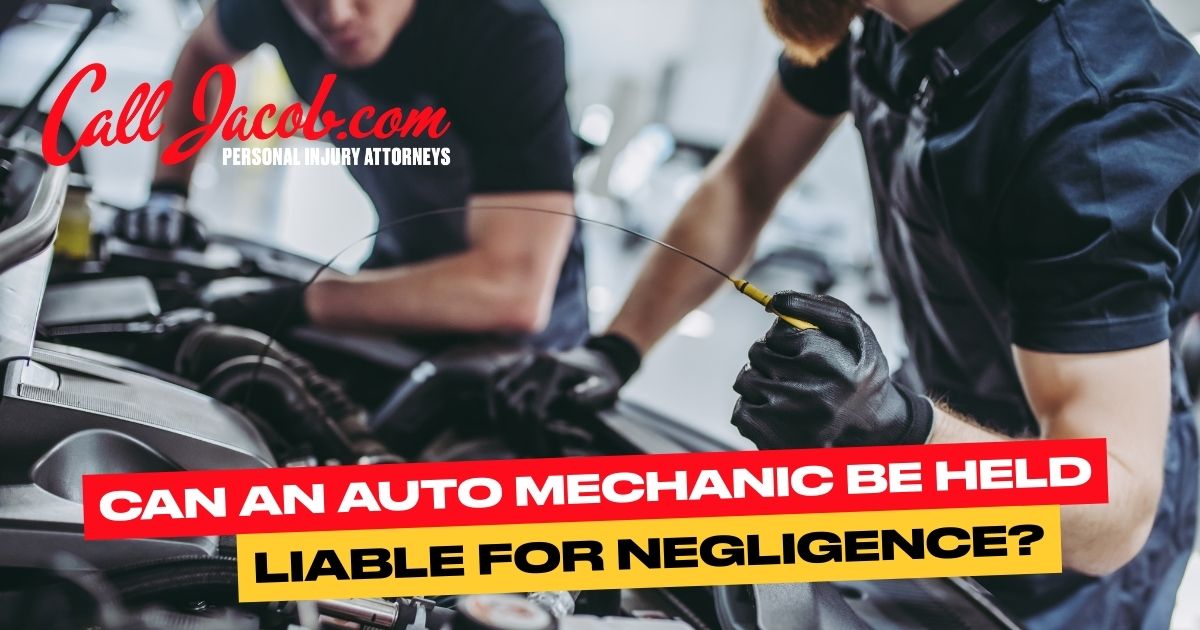Repairs should leave your car more reliable and safer than before you brought it to the shop, but faulty auto mechanic repairs may instead cause breakdowns or even serious accidents. In these situations, mechanics may be liable for damages from repairs if they made avoidable errors or misled customers. Learn how and when auto mechanics can be held liable for negligence and when to contact a personal injury attorney for help.

What Is Auto Mechanic Negligence?
Auto mechanic negligence refers to when a technician or repair shop fails to meet an established standard of their work, and that failure causes injury or loss. This is a form of professional negligence, which broadly refers to situations where a person in a skilled profession fails to perform their job safely or competently.
Negligence involves a duty of care, a breach of duty, causation, and harm. Mechanics have a duty to inspect and service cars with reasonable care, including the use of correct tools, parts, and procedures, and to return vehicles in a safe operating condition. Failing to meet these standards puts drivers and others at risk and may leave the mechanic liable.
When Can an Auto Mechanic Be Held Liable?
Mechanics are potentially liable when their actions or inaction directly cause harm, typically in cases where the vehicle is the cause of a car accident rather than a driver. Establishing causation between the mechanic’s actions and the damage often requires evidence such as expert analysis and documentation of the repair.
There are several situations in which a driver may be injured as a result of an auto mechanic’s errors.
Bad Repairs
When a mechanic performs a repair incorrectly or skips necessary steps, they may be liable for creating safety risks. Poor workmanship that causes a malfunction or accident is grounds for a negligence claim. For example, a mechanic installs brake pads but leaves the caliper bolts loose. While driving, the customer loses braking power and crashes into another vehicle.
False Estimates
Mechanics must provide written estimates and get customer approval before starting work. If they inflate charges or skip the estimate entirely, regardless of their intent, they may violate consumer protection laws and cause financial losses for the customer.
Fraudulent Repairs or Services
Charging for repairs not performed or parts not installed may qualify as fraud or negligence. These actions can result in customer damages and civil or criminal penalties. For example, a shop claims to have installed new brakes and charges the customer for it. Later, the customer’s brakes fail, causing an accident that wouldn’t have occurred had the brakes been properly serviced.
Failure to Diagnose or Misdiagnosis
If a mechanic ignores a clear issue that a qualified professional should reasonably be able to identify, they may be liable for negligence. Failing to investigate or missing problems can lead to safety hazards and further vehicle damage.
For example, if a customer brings in an overheating vehicle, the mechanic may fail to inspect each component properly to accurately diagnose the problem. As a result, the original problem may worsen, leading to higher repair costs or more significant safety hazards.

What Damages Can Be Recovered in a Negligence Case?
If a mechanic’s negligence leads to harm, the injured party may be able to recover compensation through a personal injury claim. Damages fall into several categories and depend on the nature and impact of the incident.
Economic Damages
Economic damages are quantifiable financial losses resulting from negligence. These may include:
- Medical bills for injuries sustained in an accident, including emergency care and long-term therapy.
- Lost income during recovery or reduced earning capacity.
- Vehicle repair or total replacement.
- Personal property damage, such as items in the vehicle.
Non-Economic Damages
Non-economic damages account for the personal harm suffered as a result of an accident or other traumatic event. These may include:
- Pain and suffering
- Emotional distress, depression, or anxiety
- Loss of enjoyment of life
- Disfigurement or scarring
- Impairment or disability
Punitive Damages
Courts may award punitive damages in rare but serious cases, such as when an auto mechanic is knowingly or maliciously negligent, showing disregard for human safety. Punitive damages are meant to punish and discourage reckless conduct.
How Can a Mechanic Protect Themselves?
Even highly skilled professionals can make mistakes that lead to legal action against them. Auto shops and mechanics can reduce their liability and protect themselves by performing responsible and transparent work in accordance with industry best practices. That includes:
- Documenting and time-stamping all services.
- Detailing each job with the vehicle’s condition, the parts used, and the results of tests or inspections.
- Using OEM or manufacturer-approved parts.
- Following relevant service bulletins and safety notices.
- Providing customers with written estimates and obtaining their signature and approval before completing work.
- Purchasing garagekeepers insurance and other necessary coverage.
How Can a Customer Protect Against Negligence?
When working with a repair shop, a strategic approach helps customers avoid safety hazards and losses associated with car accidents:
- Choose a reputable shop: Look for auto shops with appropriate licensing, Automotive Service Excellence certifications, and strong local reviews.
- Pre-inspect your vehicle: Check your vehicle both before and after service for any performance issues.
- Get documentation: Request a written estimate that itemizes labor, parts, and taxes before approving the work.
- Watch for red flags: Recognize warning signs of poor or dishonest workmanship, such as persistent or new problems after services, vague charges, or refusal to return old parts.

Common Legal Challenges
Suing a mechanic for negligence involves several potential legal challenges. Demonstrating causation between the mechanic’s actions and damages is often the most challenging, and it may require expert analysis, accident reconstruction, and similarly complex evidence.
Sometimes, the problem lies with a defective part rather than the mechanic, and the manufacturer may be partially or fully responsible. States also impose statutes of limitations, typically ranging from one to four years, which begin when the injury occurs or when the damages are discovered.
Contact The Law Offices of Jacob Emrani Today
At the Law Offices of Jacob Emrani, our team of personal injury attorneys has the experience to investigate faulty repairs, assess liability, and pursue compensation on your behalf. Call (888) 912-7115 to schedule your no-cost case evaluation!




